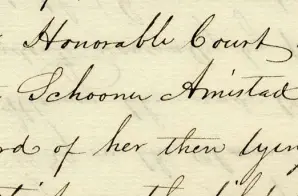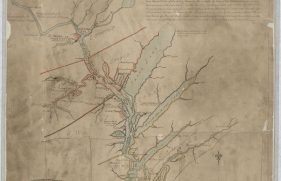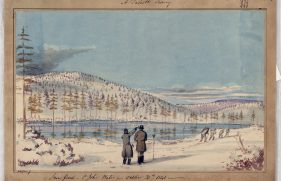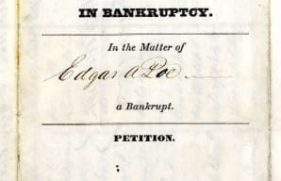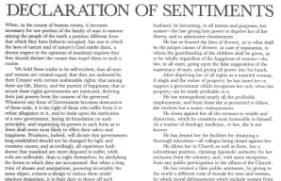United States of America
District of Connecticut [illegible]
Special District Court holden at New Haven in said District on the 7h of Jany 1840.
To the Honorable Andrew T. Judson Judge of the District Court of the United States in and for the District of Connecticut.
The several answer of Sinqua, Burnah 1, Dammah, Fourri 1st otherwise called Fouderau, Shuma, Conoma, otherwise called Ndrhaulee Choolay, Burnah 2nd Baah, Pooma, Kimbo. Peah Bang ycadu, Saah, Carle, Parli, Morrah, Nah quoi Quato, Sesse, Con otherwise called Keoony. Fourrie 2nd otherwise called Fouli wa hu, Kennah, Lamana, Fayanah yahboy, Faquanah, Berni. Fawnee, Chockaman, Gabbo, otherwise called Galabana, Carre, Teme, Kene & Mahque Africans, now in the custody of the Marshall of said District under Color of process issued from this Honorable Court on the 29th day of August 1839 against the Schooner Amistad and the articles of personal property on board of her then lying in the harbor of New London in said District, on the libel of Lieutanant Tho. R Gedney a Lieutanant in the United States Navy Commanding the United States Brig Washington in the service of the United States in the coast survey, and on behalf of Richard M. Meade a Lieut on board said Brig, and the Officers and crew thereof and all others interested or entitled, claiming salvage to be awarded to them by this Honorable Court as for a meritorious service, in seizing and securing the Respondents severally and holding them as slaves to certain Spaniards belonging to the island of Cuba, named in
said libel: – and also under process of this Honorable Court issued and served at Hartford on the 18th day of September 1839 while the Respondents were in custody of the Marshall of said District as aforesaid over at Hatford within the body of the State and District of Connecticut, in the libel and claim of William P. Hollabird Esq. United States District Attorney for said District of Connecticut and the libels respectively of Pedro Montes & Jose Ruiz; and also under process of this Honorable Court issued at Hartford aforesaid on the 19th day of November 1839 on the claim and representation of the said District Attorney then and there made and filed.
The said respondents severally by protestations not admitting or acknowledging that the Government of the United States, or any department, Court, or officer thereof hath jurisdiction over the persons of these Respondents or any of them, by reason of any of the allegations & proceedings aforesaid, & not confessing or acknowledging any of the matters & things in the libellants said several libels & Claims to be true in manner and form as the same are therein and thereby alledged, appear before this Honorable Court, and for answer to the several libels, claims & representations aforesaid severally say.
That they and each of them are natives of Africa and were born free, and ever since have been and still of right are and ought to be free, and not slaves, as in said several libels or claims pretended or surmised: – that they were never domiciled in the Island of Cuba, or in the dominions of the Queen of Spain, or subject tot he laws thereof: – that on or about the 15th day of April 1839 they and each of them were in the
lands of their natively unlawfully kidnapped and forcibly and wrongfully by certain persons to them unknown, who were then and there unlawfully and piratically engaged in the Slave trade, between the Coast of Africa and the island of Cuba contrary to the will of the Respondents unlawfully, and under circumstances of great cruelty, transported to the sa. island of Cuba, for the unlawful purpose of being sold as slaves, and were there illegally landed for the purpose aforesaid:
That Jose Ruiz one of the said Libellants well knowing all the premises, and confederating with the persons by whom the Respondents were unlawfully taken and holden as aforesaid, and intending to deprive the Respondents severally of their liberty, made a pretended purchase of the said Respondents except the said Carre, Teme, Kene and Mahque; and that the said Pedro Montes also well knowing all the premises and confederating with the said persons for the purpose aforesaid made a pretended purchase of the said Carre, Teme, Kene & Mahque, That said pretended purchase were made from persons who had no right whatever to the Respondents or any of them, and that the same were null and void, and conferred no right or title on the said Ruiz or Montes or right of control over the Respondents or either of them. That afterwards on or about the 28th day of June 1839 the said Ruiz & Montes confederating with each other and with one Ramon Ferrer now deceased, Capt. of said Schooner Amistad & others of the crew thereof caused Respondents severally without law or right under color of certain false and fraudulent papers by them procured & fraudently used for that purpose to be placed by force on board said Schooner to be transported with said Ruiz
and Montes to some place unknown to the Respondents and there enslaved for life: – That the Respondents being treated on board said Vessel by said Ruiz and Montes and their confederates with great cruelty and oppression, and being of right free as aforesaid were incited by the love of liberty natural to all men, and by the desire of returning to their families and kindred, to take possession of said Vessel, while navigating the high seas, as they had right to do with the intent to return therein to their native Country, or to seek an assylum in some free state where slavery did not exist, in order that they might enjoy their liberty under the protection of its Government – that sa. Schooner on or about the 26th of August 1839 arrived in the possession of the Respondents at Culloden point near Montauq and was there anchored near the shore of long Island [illegible] within sailing distance thereof and within the waters and territory of the State of New York – that the respondents, Sinqua, Carlee, Dammah, Baah, Morrah, Nahquoi, Quato, Con, Fajanah, Berrie Gabbo Foulcan Kimbo. Faquannah Cononia otherwise called Ndran [illegible] Yaboi Burnah 1st, Shuma, Fawn-Peah Ba & Sheeles, while said Schooner lay at anchor as aforesaid went on shore within the State of New York to procure provisions and other necessaries and while there n a State were [sic] slavery is unlawful and does not exist under the protection of the Government and laws of said State by which they were also free, whether on board of sd. Schooner, or on shore the Respondents were severally seized , as well those who were on shore as aforesaid as those who were on board of & in possession of said Schooner by the said Lieut Gedney, his officers and crew of said United States Brig Washington without any lawful warrant or authority whatever, at the instance of said Spaniards, Ruiz and Montes, with
the intent to keep and secure them as slaves to the said Ruiz and Montes respectively and to obtain an award of salvage therefore from this Honorable Court as for a meritorious act. That for that purpose the Respondents were by the said Lieut. Gedney, his officers and crew aforesaid forcibly and unlawfully withdrawn from the jurisdictional limits of the State of New York and brought tot he port of New London aforesaid and while there and afterwards under the subsequent proceedings in this Hon Court taken into the Custody of the Marshall of said District of Connecticut and confined and held in the goal in the cities of New Haven and Hartford respectively as aforesaid
Wherefore the Respondents severally pray that they and each of them may be set free, as they of right are and ought to be, and that they be released from the custody of the Marshall under the process of this Hon Court under which or under color of which they are holden as aforesaid.”
S. P Staples, & R. S. Baldwin
& J. Sedgwick
Proctors
[in different handwriting]
And at said District Court holden at New Haven in said District on the 7th day of January A.D. 1840, here in open court, come [illegible] and the house of Ashe & [illegible], subjects of he Queen of Spain, and by [illegible] of the Court files this claim in the [illegible} following to wit.
